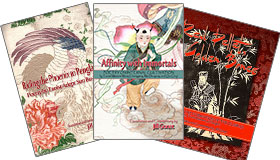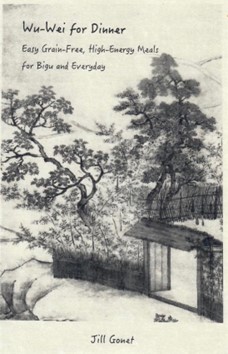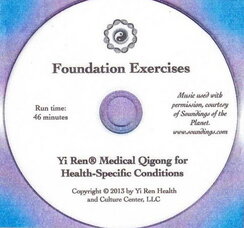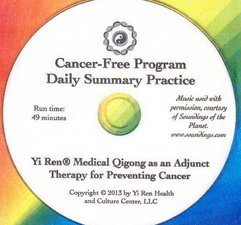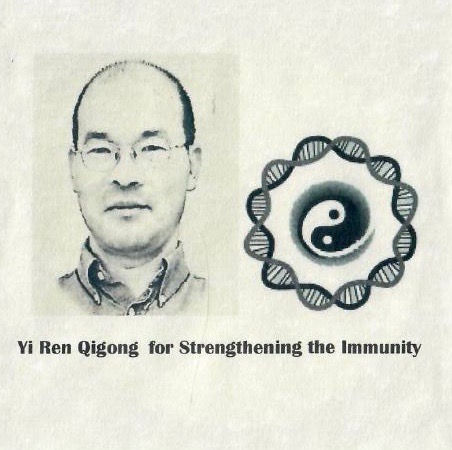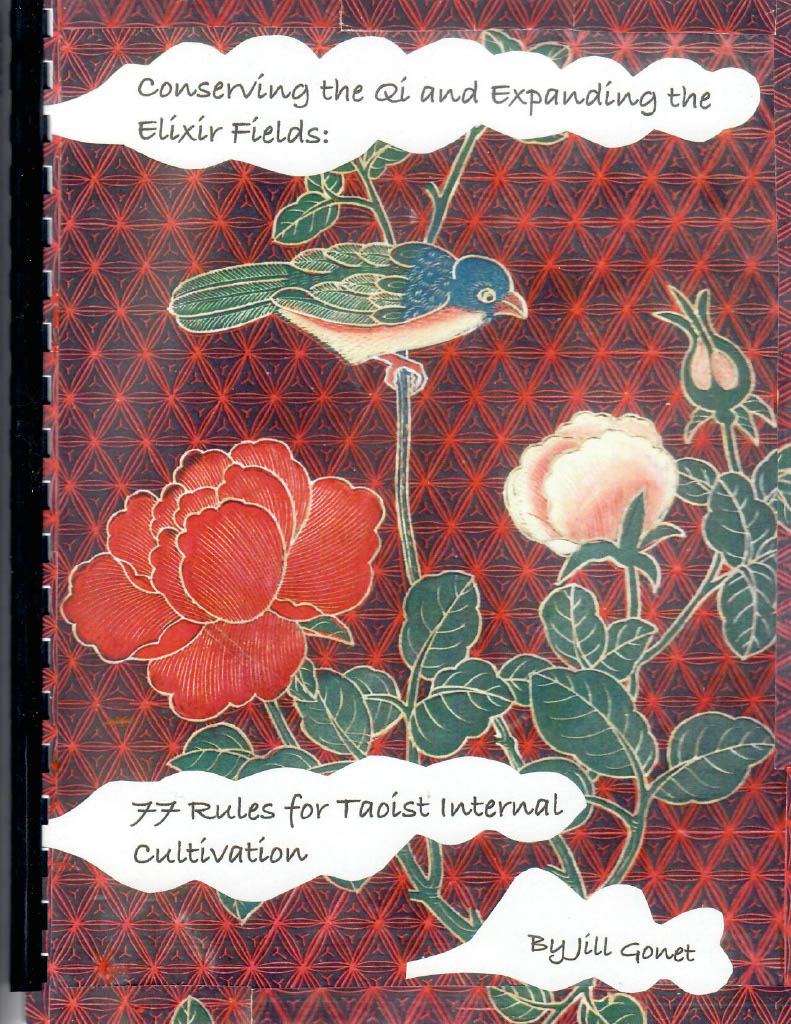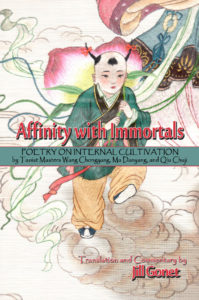Books
New Release!
A Yi Ren Handbook for Seniors
by Guan-Cheng Sun and Jill Gonet
Description
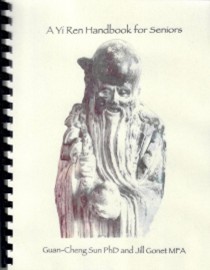 This two-part handbook has been culled from decades of Dr. Guan-Cheng Sun’s Yi Ren Qigong protocols, and Part 2 presents a generous menu of Yi Ren Qigong practices for seniors. The set that is offered here in A Yi Ren Handbook for Seniors is a curated set, which has been brought together from Dr. Sun’s archived legacy. Protocols are arranged to be user-friendly; illustrations have been provided where necessary for the most important points of focus in each exercise. These exercises hold promise for senior health care and for aging with greater independence and higher energy levels. (For example, in several of the exercises Dr. Sun describes them as contributing to longevity. In addition, exercises that strengthen the lower half of the body are particularly helpful for older adults, so there are practices devoted to the legs. Because many seniors have lost loved ones, there’s a protocol addressing grief.) The advice offered in Part 1 of the Handbook is based upon decades of dedicated practice and observation, and suggests some points that could help to make the pendulum swing in a positive direction regarding various areas of senior health and well-being.
This two-part handbook has been culled from decades of Dr. Guan-Cheng Sun’s Yi Ren Qigong protocols, and Part 2 presents a generous menu of Yi Ren Qigong practices for seniors. The set that is offered here in A Yi Ren Handbook for Seniors is a curated set, which has been brought together from Dr. Sun’s archived legacy. Protocols are arranged to be user-friendly; illustrations have been provided where necessary for the most important points of focus in each exercise. These exercises hold promise for senior health care and for aging with greater independence and higher energy levels. (For example, in several of the exercises Dr. Sun describes them as contributing to longevity. In addition, exercises that strengthen the lower half of the body are particularly helpful for older adults, so there are practices devoted to the legs. Because many seniors have lost loved ones, there’s a protocol addressing grief.) The advice offered in Part 1 of the Handbook is based upon decades of dedicated practice and observation, and suggests some points that could help to make the pendulum swing in a positive direction regarding various areas of senior health and well-being.
Durable laminated cover; 55 pages
Standing on a Cloud: 50 Taoist Poems and A Few Songs to the Moon
by Jill Gonet
Description
Standing on a Cloud, 50 Taoist Poems and A Few Songs to the Moon, offers its reader many poems about Taoist internal cultivation, as well as some general poems in which the images and language provide a pharmacopeia for the ills of an overworked mind or of a mind that is not in harmony with the body.
The collection also includes poems about Internal Elixir Master Guan-Cheng Sun, as well as others in which Taoist discipline renders the images within the poems an extraordinary and yet ordinary presence at one and the same time. The collection provides a re-set for those who are needing to attune both to mental silence and energetic vitality.
“Jill Gonet’s writings and translations constantly inspire me and help me stay rooted to this work. When I pick up a book and read a poem or a rule, it feels like a direct line into this work and a much more nourishing vibration. I am able to separate much quicker from the noise of the world and enjoy my practice.”
–Ryan Lilly
Wu-Wei for Dinner: Easy Grain-Free, High-Energy Meals for Bigu and Everyday
by Jill Gonet
Description
Bigu, for some people, means intermittent fasting, and perhaps educating the stomach about what one should be eating to foster one’s cultivation. For others, bigu means abstention from grain, and this cookbook offers a solid collection of delicious and easily prepared meals that are grain-free. The recipes strike a happy medium and include a few poultry dishes and a couple of fish dishes, in addition to vegetarian dishes. All of the recipes in the book come from years of experience in creating simple, satisfying, and economical nourishment that fosters cultivation. Dr. Sun had many favorite dishes, and when he especially liked something, we would note it down, and he would also give that meal a name, so all of the recipes in this book were his favorites and were named by him, over the many years of his service in healing and teaching our community.
Tribute to Sifu
by Jill Gonet
Description
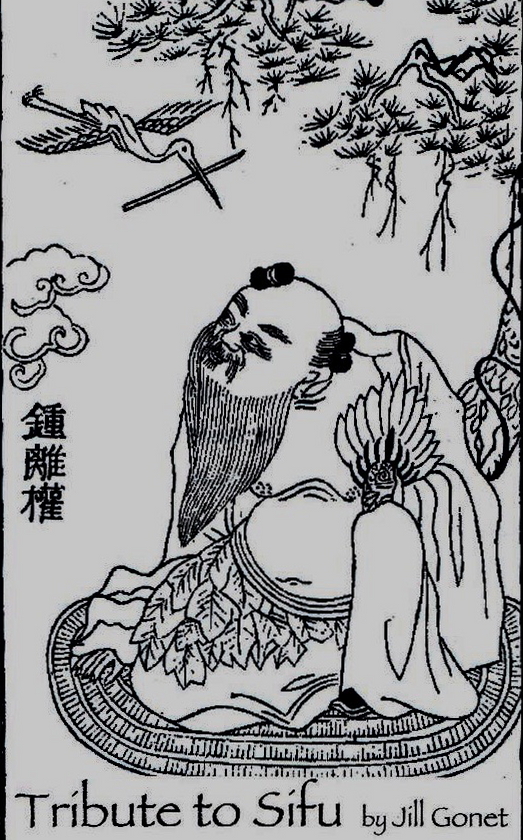 Tribute to Sifu presents a portrait in poetry of Master Guan-Cheng Sun at work, with stories from his youth, with vivid descriptions of Authentic Qi in his classes, and with a view into the Master’s lineage connection that permeates his life, often in supernatural ways. This book is meant to encourage and inspire wonder, and to instill a sense of connection to a very advanced state of cultivation. The collection offers a series of verbal pictures resonating with the vitality and spirit of a beloved modern Internal Elixir Master. Tribute to Sifu opens a window into another perspective on reality, and another orientation altogether − one that participates in the panoramic and magical possibilities available to those who have dedicated themselves fully, and at all levels, to the cultivation of the Tao.
Tribute to Sifu presents a portrait in poetry of Master Guan-Cheng Sun at work, with stories from his youth, with vivid descriptions of Authentic Qi in his classes, and with a view into the Master’s lineage connection that permeates his life, often in supernatural ways. This book is meant to encourage and inspire wonder, and to instill a sense of connection to a very advanced state of cultivation. The collection offers a series of verbal pictures resonating with the vitality and spirit of a beloved modern Internal Elixir Master. Tribute to Sifu opens a window into another perspective on reality, and another orientation altogether − one that participates in the panoramic and magical possibilities available to those who have dedicated themselves fully, and at all levels, to the cultivation of the Tao.
Affinity with Immortals – Poetry on Internal Cultivation
by Taoist Masters Wang Chongyang, Ma Danyang, and Qiu Chuji
Translation and Commentary by Jill Gonet
Description
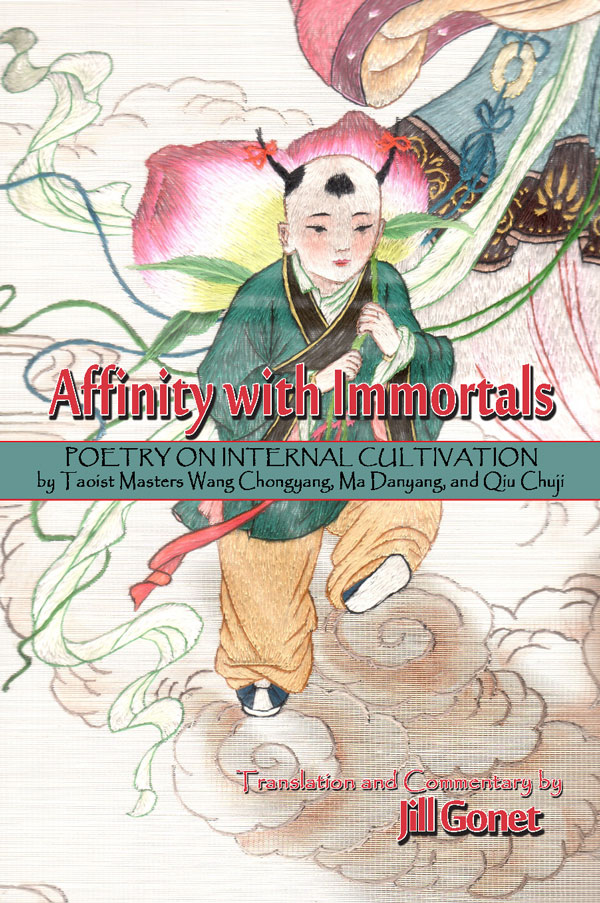 Affinity with Immortals presents poems on Taoist cultivation by three great Jin Dynasty adepts- Masters Wang Chongyang, Ma Danyang, and Qiu Chuji. All three founded important Taoist schools: Master Wang Chongyang established Quan Zhen, or Complete Reality school; his student, Ma Danyang, assisted him in doing so, and then later founded his own school, the Yu Xian Pai (Meeting with Immortals) school; Qiu Chuji, who was a student of both of the other two Masters, ultimately became a great Chinese cultural hero in the years just prior to the establishment of the Yuan Dynasy, and founded the Dragon Gate school.
Affinity with Immortals presents poems on Taoist cultivation by three great Jin Dynasty adepts- Masters Wang Chongyang, Ma Danyang, and Qiu Chuji. All three founded important Taoist schools: Master Wang Chongyang established Quan Zhen, or Complete Reality school; his student, Ma Danyang, assisted him in doing so, and then later founded his own school, the Yu Xian Pai (Meeting with Immortals) school; Qiu Chuji, who was a student of both of the other two Masters, ultimately became a great Chinese cultural hero in the years just prior to the establishment of the Yuan Dynasy, and founded the Dragon Gate school.
This selection of the three Masters’ poetry on cultivation presents a host of teachings and touchstones to interested students of the Tao, conveying lifetimes of practice and teaching experience in instructional poems that are also resonant and successful lyrics.
Ms. Gonet’s translations succeed in rendering each Master’s personal style, and the additional commentaries demonstrate the connections between the Masters, as well as highlight some of their differences, offering the contemporary student of the Tao an inspiring immersion into the evolution of the Complete Reality Taoism.
Other Taoist Masters Have This to Say About Jill Gonet’s Book Affinity with Immortals
“As I read further into Affinity with Immortals, I am at a loss in deciding what to include in my writings and what to omit. Often, when I come across a very meaningful book, I admit to my readers, go buy it yourself, I can’t possibly reproduce every worthwhile point that Ms. Gonet makes. I already told my Daoist priest members (of the American Dragon Gate Lineage) that this book will be required studies for them.”
From Shifu Michael Rinaldini’s new book “A Taoist Grows In The Heart” page 562.
https://www.qigonginstitute.org/category/47/michael-rinaldini-dragon-gate-daoist-qigong
Red Pellet, Golden Bones, Poetry on the Formation of the Elixir Qi
by Taoist Master Lü Dongbin
Translation and Commentary by Jill Gonet.
Description
![Red Pellet Golden Bones FINAL COVER PROOF[1]](https://yirenpress.com/wp-content/uploads/2013/12/Red-Pellet-Golden-Bones-FINAL-COVER-PROOF1.jpg) This selection of Lü Dongbin’s poems on the art of Taoist internal cultivation and the formation of the Elixir presents two of the Master’s instructional poetry sequences, as well as a third selection of his poems on the general subject of cultivation. One of the eight legendary Taoist immortals, Master Lü Dongbin was born in 796 C.E. in the province of Shanxi, during the Tang dynasty.
This selection of Lü Dongbin’s poems on the art of Taoist internal cultivation and the formation of the Elixir presents two of the Master’s instructional poetry sequences, as well as a third selection of his poems on the general subject of cultivation. One of the eight legendary Taoist immortals, Master Lü Dongbin was born in 796 C.E. in the province of Shanxi, during the Tang dynasty.
Scholars, dedicated cultivators of the Tao, and those who are both, will find within these poems the trail of returning to the source. The reality that emerges throughout the stages of cultivating the Elixir Qi is both spiritual and of the physical body, and in this, these extraordinary poems are like mirrors reflecting the Master’s experience of the union of spirit and body, the nature of the task of the creation of the Elixir, and the phases of its formation. In the Lü Dongbin poems presented here, the Master is working with and through the body, and he focuses again and again on what is right there within the aspiring adept.
The poems in the current selection are presented with clarity and directness, and the glosses shed significant light on the coded language and symbolism within the poems. Ms. Gonet’s translations and commentary offer the modern Western reader and Taoist practitioner a valuable window into the most central ideas and experiences involved in the processes and phases of creating the Internal Elixir, bringing the art of Taoist cultivation into the hands of modern-day cultivators of the Tao and practitioners of the Taoist arts. Many of these poems deserve to be used as meditation scriptures, for their terms and images resonate in a holy and responsive manner within the being. Ms. Gonet’s translation does an impressive job, and provides the reader with excellent English equivalents that impart much of the same meaning and feeling as the original.
Red Pellet, Golden Bones Endorsement by H. Withrow, student of the Way
Riding the Phoenix to Penglai, Poetry by Taoist Adept Sun Bu-Er
Translation and Commentary by Jill Gonet.
This book presents two poetry sequences by Jin Dynasty poet and Taoist Master, Sun Bu-Er. Her poems present a concise and orderly course of study for internal cultivations.
Description
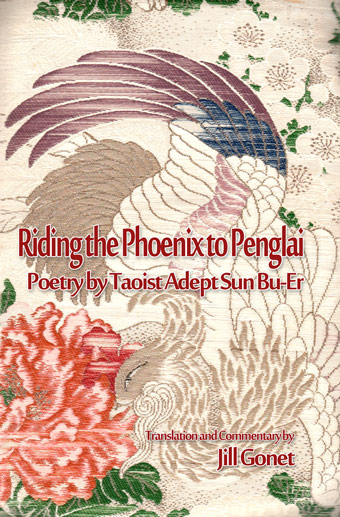 This book presents two poetry sequences by Jin Dynasty poet and Taoist Master, Sun Bu-Er. A Complete Reality School adept, Sun Bu-Er lived between 1119–1182 C.E. in the Shandong province of China. Her first poem sequence presents, in fourteen poems, a concise and orderly course of study for internal cultivations, one that includes guidance and instruction in breathing styles, points of focus, lifestyle decisions and choices, development of the elixir, nutritional advice, and the way of spiritual development. The translator has rendered the poems into English with skill and naturalness, and has also added commentary to enlarge upon the instructions given in each poem.
This book presents two poetry sequences by Jin Dynasty poet and Taoist Master, Sun Bu-Er. A Complete Reality School adept, Sun Bu-Er lived between 1119–1182 C.E. in the Shandong province of China. Her first poem sequence presents, in fourteen poems, a concise and orderly course of study for internal cultivations, one that includes guidance and instruction in breathing styles, points of focus, lifestyle decisions and choices, development of the elixir, nutritional advice, and the way of spiritual development. The translator has rendered the poems into English with skill and naturalness, and has also added commentary to enlarge upon the instructions given in each poem.
Also included is a seven-poem sequence on mastery, followed by the translator’s commentary on the achievements of a master, with practical guidance for cultivators of the Tao. Readers will find this a helpful and cogent rendering of material describing the path to Taoist attainment, with Sun Bu-Er’s masterful poems, and the translator’s insightful essays about Sun Bu-Er’s program for students of the Tao.
Throughout, there is an unspoken and yet prevailing idea—that the fruits of cultivation are not merely the product of a transmission from master to disciple, but instead are accrued over time to the diligent practitioner whose aim is true, whose will is directed, and whose focus is steadfast. In this, Sun Bu-Er excels in de-mystifying the process of attaining spiritual immortality.
About the Translator, Jill Gonet, MFA
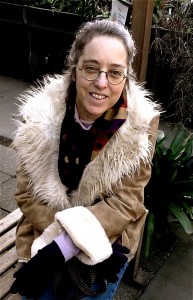 Jill Gonet earned her B.A. at the University of Massachusetts, and then moved to Seattle where she earned her M.F.A. from the University of Washington, Seattle. She has resided in the Pacific Northwest ever since. Her writing has appeared in numerous literary journals over the years, including Poetry, Ploughshares, The New England Review, The Gettysburg Review, and The Best American Poetry, among others. She is the recipient of awards from the Poetry Society of America, as well as grants from the Seattle Arts Commission. Interested in ancient Daoist classics since high school years, she has studied the Dao De Jing-the Way of Virtues, Yi Jing-the Book of Change, Ling Shu-the Spiritual Pivot, Zhuang-Zi,and Lie-Zi diligently. A meditator and Qigong practitioner with over 25 years of experience, she has combined her interests in writing, Chinese culture, and the art of internal cultivation by collaborating on many writings with Dr. Guan-Cheng Sun.
Jill Gonet earned her B.A. at the University of Massachusetts, and then moved to Seattle where she earned her M.F.A. from the University of Washington, Seattle. She has resided in the Pacific Northwest ever since. Her writing has appeared in numerous literary journals over the years, including Poetry, Ploughshares, The New England Review, The Gettysburg Review, and The Best American Poetry, among others. She is the recipient of awards from the Poetry Society of America, as well as grants from the Seattle Arts Commission. Interested in ancient Daoist classics since high school years, she has studied the Dao De Jing-the Way of Virtues, Yi Jing-the Book of Change, Ling Shu-the Spiritual Pivot, Zhuang-Zi,and Lie-Zi diligently. A meditator and Qigong practitioner with over 25 years of experience, she has combined her interests in writing, Chinese culture, and the art of internal cultivation by collaborating on many writings with Dr. Guan-Cheng Sun.
Book Reviews
Riding the Phoenix to Penglai Review
by Dr Elliot Cohen, Leeds Beckett University, School of Social Sciences, UK
真好
I’ve always found the concise cultivation instructions of Sun Bu-Er to be beautiful, but ultimately esoteric – this is likely due to these texts typically being intended for the initiated disciple.
Jill Gonet has produced an engaging translation with its feet firmly rooted in the Earth while its head soars into the Heavens.
The translation and accompanying interpretations are simultaneously profound, poetic, pithy and practical.
It is the practical aspects, provided in the generous commentaries, that sets this translation apart – as Gonet is eager to explain and share the specific cultivation practices involved.
A Review of “Riding the Phoenix to Penglai”
By Lauri Amidon, Board President of the Institute of Qigong and Integrative Medicine
Riding the Phoenix to Penglai contains two sets of poems by a female Taoist Adept, Sun Bu-Er, with exceptional translations and commentary by Jill Gonet. As Ms. Gonet points out, Sun Bu-Er’s poetry is lovely as an expression of Art and can be appreciated for Art’s sake. This is certainly true. The poems are so beautiful and the phrases are sublime, such as “From mountaintop and ocean bottom one hears the thunder after the rain” or “the person with a simple heart converses with the unadorned hearts of the flowers.” However, on another level, Sun Bu-Er’s poetry is also an instruction manual for Taoist cultivators. Because of the intimacy, clarity and insightful information of Ms Gonet’s writing, I believe that not only were Sun Bu-Er’s words translated, they were internalized by Ms. Gonet’s own practice and experience. We, the readers, are fortunate to receive experienced insight–a priceless gift for the aspiring adept.
Ms. Gonet has up-dated Sun Bu-er’s instructions for the modern-day Taoist practitioner. While Sun Bu-Er wrote specifically for the female practitioner, Ms. Gonet lets the reader know that many points offered throughout the book certainly provide guidance and instruction for male practitioners as well.
“Riding The Phoenix” touches upon such subjects as breath-work, Qi development, awareness, lifestyle choices, nutrition, development of the elixir, specific metaphorical meanings in the Taoist literary tradition, and forward ideas about identity, female sexuality, and markers of success (or otherwise) on the path of internal cultivation. We are taken from the beginning of the cultivation practice to the formation of the spiritual body.
Sun Bu-Er was wholly dedicated to her internal cultivation and spiritual growth and development. She began with the development of Qi, then took that qi to a deeper expression through internal transformation, developed universal connection and realized cosmic Truth and Wisdom, becoming a true expression of the potential for spiritual being through the formation of the spiritual body. Her accomplishment is well-documented and is quite out of the ordinary.
Sun Bu-Er’s poetry packs tremendous meaning into each phrase, which makes every line very rich, and open to a variety of interpretations in Chinese. In many translations, it can be difficult and challenging to catch the right meaning of each phrase; however, the reader will find, in this case and in this translation, that Sun Bu-Er’s brevity translates to crystal clear expression and practical instruction to optimally guide the reader.
“Riding The Phoenix” is more than an instruction manual. It is filled with beauty and power as Sun Bu-Er’s words come to life in the West through Ms. Gonet’s translations, commentary and insights.
 Yi Ren Press
Yi Ren Press
